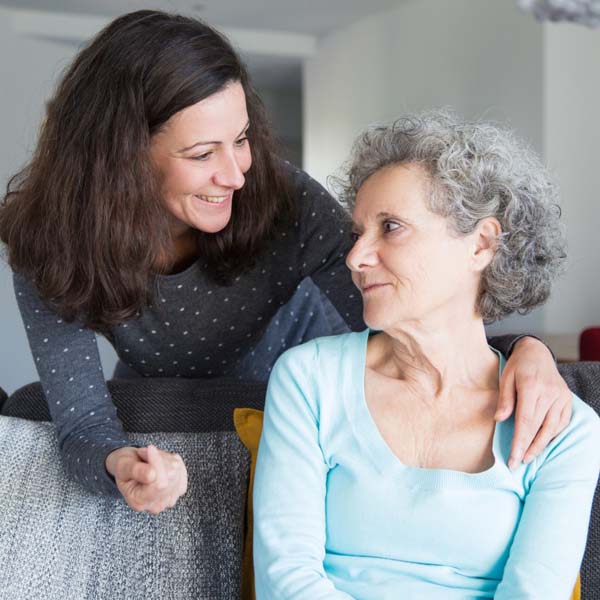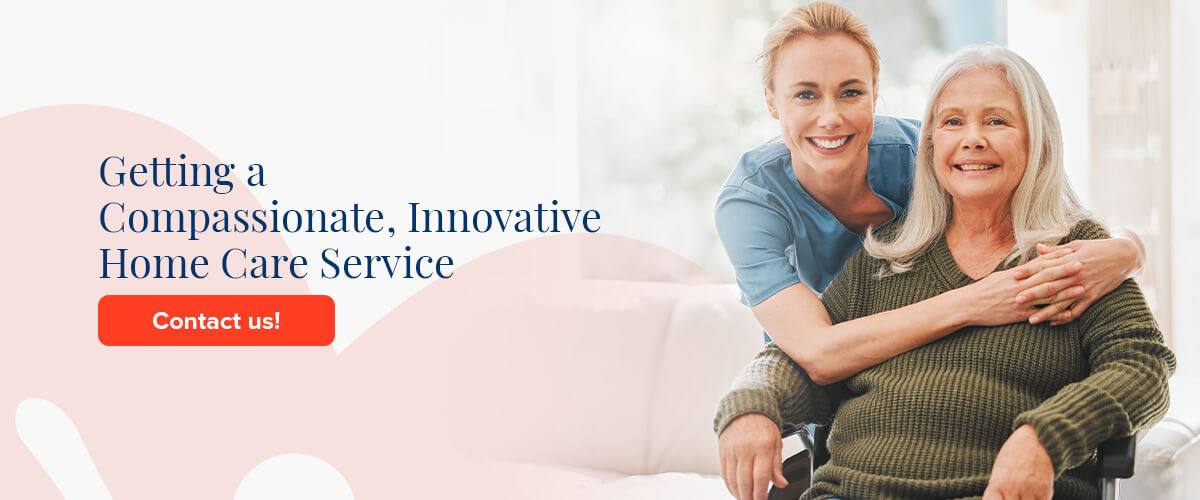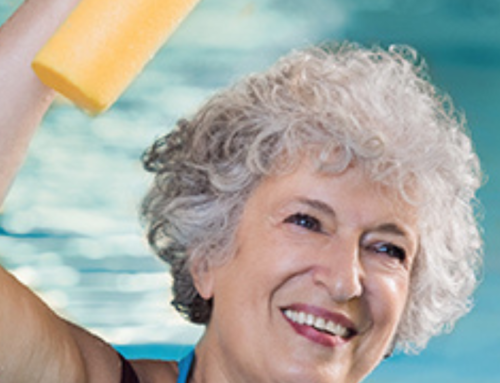Sometimes an older adult’s need for additional help is obvious. It could be that he or she is having a hard time getting to appointments, seems confused by instructions or perhaps isn’t paying bills on time. More often, though, the change happens gradually. That’s where a professional assessment from Open Arms Home Care comes in.
“The goal,” says Ardeshir Hashmi, M.D., section chief of the Center for Geriatric Medicine at Cleveland Clinic, “is to pick up clues early, before they start to impact day-to-day life in a significant way, so we can do something about them.”
Here are red flags to look for, which may signal a loved one needs further evaluation — and possibly more support.
Mobility
According to the Centers for Disease Control and Prevention, each year, more than 25% of older adults will have a fall. Don’t let your loved one be part of those statistics. There are some simple steps you can take to ensure their safety; evaluate their living space, and look at everything from their ‘view’. If you have children, you may remember crawling around on the floor, looking for any hazards they may ‘get into’? Same with your loved ones! Pay close attention to how your loved one is getting around. Look out for potential fall hazards; indoor or outdoor stairs, or throw rugs that may slip (and get caught up in a walker). Is everything within a safe arms distance? Do their shoes have good traction?
Lack of mobility takes both a physical and psychological toll on our loved ones. Lindsey Yourman, M.D., a geriatrician affiliated with the University of California, San Diego Health-Jacobs Medical Center, speaks to something known as life space; this is the area that you can walk to safely — meaning the environment that is available to you on a daily basis. When our life space is decreased, often comes decreased interactions with others as well as in our activities. This can quickly lead to isolation and depression.
Assessing mobility
Mark a line about 10 feet from a chair. Take out your phone and pull up your timer. At the word “go,” ask your loved one to stand up from the chair, walk at a normal pace forward to the line, turn, walk back to the chair and sit down. On average, people who take 12 seconds or more to complete the test are at a high risk of falling. Also, observe them walking across a room and take note of their gait speed and the movement of their feet. Are they shuffling or dragging them? How far apart are their feet when walking? When someone spreads their feet far apart, that tends to indicate difficulty in balance. Other signs that may indicate strength or balance issues: difficulty rising from a chair, using furniture or a wall for support when walking, and difficulty pivoting. “If they walk down the hall and come back, how many steps does it take to turn? More than three steps may indicate a mobility issue,” Yourman says.
What to do
Consider modifications to make the home safer. These may include handrails on both sides of stairs, grab bars for getting in or out of the shower or a walk-in bathtub, a higher toilet seat or added ramps. In the kitchen, make it easier to reach everyday items by storing them in lower cabinets. Add inexpensive sliding pantry organizers and shelving to cabinets for easier access. If you’re not sure where to start or what to prioritize, we can assist you with evaluating needs vs wants. We can also help teach your loved one on how to use any aids correctly.
Mental health
Depression can be tricky to spot in older adults. It’s normal for an older person to feel down every once in a while — perhaps frustrated by health problems or worried about money. What’s more, there isn’t necessarily a mood component. “We have a stereotype of depression as not getting out of the chair all day, kind of folding inward,” says Luci Draayer, a Denver-based clinical social worker and therapist. “That can be part of it, but there are other symptoms.” Among them: changes in energy levels; irritability or anger; loss of interest in once-enjoyable activities; difficulty sleeping, or sleeping more than usual; eating more or less than usual; and thoughts of death or suicide.
Dementia, meanwhile, is more a memory change or impairment. The common theme is forgetfulness, more than people would expect with normal aging. “Early on, changes and difficulty with what we call instrumental activities — financial management, managing medications and driving — on a daily basis may indicate impairment caused by dementia,” Hashmi says. Another cognitive issue, says Draayer, is “a loss of insight or poor judgment — say, the bathtub was left running and overflowed because they left to go watch a movie.”
Depression sometimes gets misdiagnosed as dementia, since an older adult with depression may exhibit dementia-like symptoms. “People who have depression may not concentrate as well, and that may sometimes look like memory loss and dementia — we call that pseudodementia,” says Katherine O’Brien, M.D., an assistant professor of medicine, Division of Internal Medicine and Geriatrics, Northwestern University’s Feinberg School of Medicine. Being able to distinguish between the two is important. “Depression is eminently treatable,” Hashmi says. “And when depression is treated early, memory and concentration can also improve.”
What to do
Ask your loved one if they’re feeling sad or anxious about something. A chronic illness or limited mobility increases a person’s risk of developing depression. Listen and offer emotional support. If you don’t live nearby, ask friends and neighbors to look in on your loved one. Also, work with the Area Agency on Aging to develop a support plan. Or consult a geriatric psychiatrist, a doctor trained to recognize and treat mental illnesses in older people. Treatment can include antidepressants, talk therapy or a combination of the two. Visit the American Association for Geriatric Psychiatry’s website to find a specialist near you. Finally, ask your loved one’s primary care physician or pharmacist if a specific medication — or combination of drugs — could be causing their depression. If you suspect dementia, you may want to contact a neurologist.
Money matters
What you’re looking for: stacks of unopened mail and unpaid bills, uncashed checks, and key home or legal documents that haven’t been dealt with. Another flag: unusual transactions or amounts of money going to charities. “During the pandemic, my clients have been bombarded with telemarketing scams,” says Robin Mansfield, a geriatric care manager, and social worker at Aging Network Services.
What to do
The solution may be as simple as helping sort the mail and prioritizing. Offer to help with the more complicated matters while your loved one continues handling day-to-day household and personal finances. For example, help your loved one open another checking account that he could use for cash and basic needs, and pay the bills from his primary account. “You could suggest getting online access to at least look over their banking to see if something’s run amok,” says Virginia Morris, author of How to Care for Aging Parents. “You’re not managing or taking over their financial affairs, just acting as another set of eyes.” Also, many banks will arrange, with your parent’s permission, to have bank statements sent to you. You may also need to help your loved one hire a financial manager. Finally, Morris says, be sure they have legal documents in place, so you are able to help manage affairs in an emergency.
Driving
By 2030, there will be more than 70 million people aged 65 and older, and about 85 percent will be licensed to drive. In fact, seniors are outliving their ability to drive safely by an average of seven to 10 years, according to AAA. Multiple accidents or a number of tickets means it’s time to have a talk. “It can be subtle, like scratches or dings on the car,” Hashmi says, “particularly if your loved one can’t remember how they got there.”
What to do
Tag along for a ride and keep your eyes peeled. Is your loved one having close calls or getting lost on very familiar roads? Does there appear to be a cognitive problem or vision difficulties? It may be time for a medical evaluation. Poor vision may be easily fixed with a new pair of prescription glasses. Suggest that they refresh their driving skills by taking a driver safety course. AAA RoadWise Driver is an online course designed to help seniors adjust to age-related physical changes. The AARP Smart Driver course, available online or in a classroom, helps drivers 50 and older sharpen their skills — and may entitle you to a discount on insurance.
If it is time to hang up the keys, look for other transportation options to help your loved one get around and maintain their independence — from Uber and Lyft to senior shuttles or a caregiver.
Changes in appearance
Has your loved one’s appearance changed? Have they gained or lost a significant amount of weight? Is your father’s hair matted or has he gone without shaving for a while? “If your mother was always meticulous about her appearance but is suddenly wearing the same clothes every day or isn’t cutting her nails, it could indicate cognitive issues or depression,” Mansfield says. Unexplained bruises — where a loved one can’t remember when or how they got them — are another red flag. An odor may be a sign that they’re not bathing.
What to do
These changes may have multiple causes, so go on a fact-finding mission. For example, says Draayer, changes in hygiene may reflect a lack of motivation or a lack of awareness (possibly pointing to depression or a cognitive issue that may need evaluation and treatment). Or, you may find that changes in mobility — say, a fear of getting in and out of the bathtub or showering — are hindering their ability to care for themselves. Perhaps grab bars need to be installed or a handheld shower and shower seat purchased.
Life at home
Your loved one may be withdrawing from friends and family. Perhaps they’re not keeping up with the usual chores or favorite hobbies (for example, Mom’s beautiful garden is now filled with weeds). Or it could be another issue. “Look in someone’s refrigerator to see if food is spoiled or that hasn’t been eaten,” says Nisha Rughwani, M.D., associate professor of geriatrics and palliative medicine at the Icahn School of Medicine at Mount Sinai in New York City. If they need to follow a special diet, make sure they’re adhering to it. Keep an eye out for sugar-laden and processed foods (no-no’s for those with type 2 diabetes) or treats that are high in sodium (if your loved one has high blood pressure). Check out the bathroom linens, Mansfield says: “Does it seem like they’re using the same towels over and over because they’re not doing laundry?”
What to do
People who are lonely and disconnected from others have faster rates of cognitive decline. What’s more, according to the National Academies of Sciences, Engineering and Medicine, adults aged 50 and older have a higher risk of mortality due to social isolation and loneliness. Find out who your loved one interacts with on a regular basis. Seek out potential activities they’d enjoy, such as a senior center, a program where she can volunteer, or simply a regular gathering of friends for coffee. Regular phone calls can help keep your parents socially connected, as can other technology, such as video chats, online communities and social media such as Facebook. Some groups specialize in helping seniors set up technology, such as Senior Planet from AARP and SeniorNet. Arrange for a home aide or caregiver to spend time with your parent(s). We can also help with meals, housekeeping (and laundry), errands, and our favorite, socialization and bonding!
Medication
“Medication is a double-edged sword,” notes Ian Neel, M.D., medical director of the Geriatric Medicine Consult Service at UC San Diego Health. This is especially true when it comes to seniors — many of whom may be taking five or more drugs on a given day, or more drugs than are medically necessary, a phenomenon known as polypharmacy. “How those pills are going to interact with each other and potential side effects that may occur when that cocktail is in your system is unpredictable,” Neel says.
What to do
“Look at your loved one’s pill bottles to be sure medication is being taken as directed and is being refilled,” Rughwani says. A home aide can set up a pill organizer, and keep an updated list of when prescriptions as well as OTC products and supplements/vitamins are taken. We are skilled in how to offer gentle reminders when it’s time for their next dose. We can also review medications and/or combinations to determine any potential interactions while recognizing troubling systems (such as fatigue/depression) to ensure changes are made quickly. There are even Geriatric Pharmacists that can be consulted.
The next step
Noticing more than a few red flags? It may be time to get a professional to assist you and your family.
An Open Arms Care Manager will discuss your hopes, concerns, and next steps… whether you are looking for information, resources, or considering home care, we can help. Feel free to call us directly at 267-762-9989, reach out to us via our contact form or email us at info@openarmshc.org and we can set up a time to meet that works best for you.








